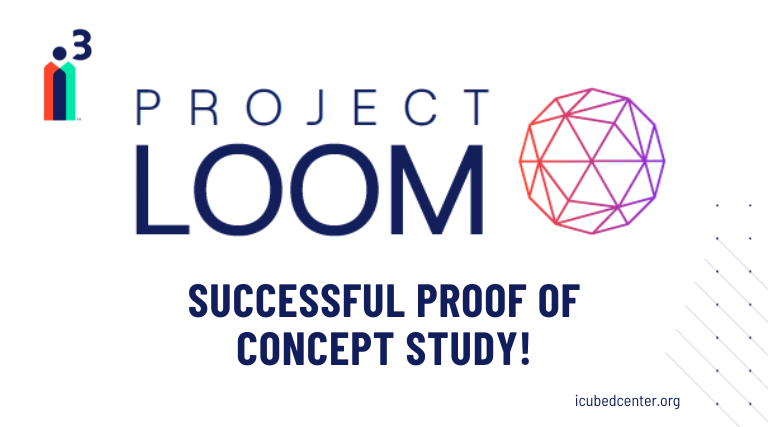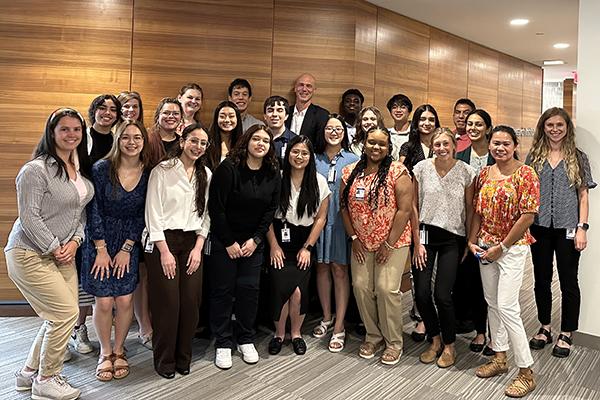DCRI Marks 30 Years of Innovation, Impact & a Future-Forward Vision for Clinical Research
This year, the Duke Clinical Research Institute (DCRI) celebrates a major milestone: 30 years of advancing clinical research to improve health around the world.
Duke to lead statewide attempt to break world record for most CPR training in one day
On February 25, 2026, North Carolinians have a shot at making history. Duke School of Medicine is leading a statewide effort to break the world record for the most people trained in hands-only CPR in a single day. Every day, someone learns how to save a life with CPR. But on this day, the goal is far bigger: to train at least 30,000 people across the state, giving them the skills and confidence to step in during a cardiac emergency — and drastically increase the chance of survival.
IQVIA, DCRI Announce Strategic Collaboration to Advance Clinical Research in Obesity, Related Conditions
IQVIA, a leading global provider of clinical research services, commercial insights and healthcare intelligence to the life sciences and healthcare industries, and the Duke Clinical Research Institute (DCRI), one of the world’s largest academic clinical research organizations with extensive experience designing and operationally executing large, complex multi-center clinical trials, are pleased to announce their new collaboration to enhance the conduct of clinical research in obesity and related cardiometabolic trials.
i-Cubed Demonstrates AI-Driven Clinical Trial Automation in Major Proof-of-Concept Study
i-Cubed, the center for clinical research innovation at the Duke Clinical Research Institute (DCRI), has reached a major milestone in its effort to reimagine how clinical trials are run, completing a successful proof-of-concept study that demonstrates how AI can automate large portions of clinical trial operations faster, more consistently, and with built-in quality and compliance controls.
DCRI Accomplishments – Fall 2025
DCRI Accomplishments showcases the publications, awards, and other achievements of our faculty members. Each quarter, a new collection will highlight the most recent accomplishments.
In a U.S. First, Drones Deliver AEDs in North Carolina County
A new Duke Health research project aims to reduce cardiac arrest response times by using drones to quickly deliver treatment devices. Duke Health and partners in Forsyth County have launched a first-of-its-kind study in the U.S. to dispatch drones carrying automated external defibrillators – known as AEDs – during real 911 calls.
DCRI reveals new results, shares expert insights at AHA25
The Duke Clinical Research Institute (DCRI) had a broad and visible presence throughout the 2025 American Heart Association Scientific Sessions, Nov. 7-10 in New Orleans. Faculty and staff participated in more than 40 sessions across a wide spectrum of scientific and educational sessions. Their contributions spanned general and featured presentations, moderated discussions, digital poster forums, late-breaking and featured science, and hands-on simulations.
Duke Awarded Funding to Raise Standard of Care for Pain Management
Chronic pain is one of the most burdensome conditions in the United States, with lower back pain comprising the largest subset of those conditions, and veterans bearing a disproportionate amount of this societal burden. Two Duke researchers will lead a new study to change that reality and raise the standard of pain care management with navigated care.
Expanding Clinical Research in Rural Communities
For most of rural America, access to clinical research addressing rural health — and to physician-researchers focused on this area — is extremely limited. According to Danny Benjamin, MD, PhD, MPH, that’s simply not sustainable for long-term health in most of the country. As a leader of a program designed to develop future researchers through hands-on experience and mentorship, Benjamin is working to address this shortage.
No Copay Physical Therapy Program Associated with Lower Downstream Imaging, Injection, and Surgery for Musculoskeletal Conditions
A program that removes copays for physical therapy is associated with lower rates of costly health care services like imaging, injection, and surgery, according to findings from a new study from ATI Physical Therapy and the Duke Clinical Research Institute (DCRI). The report, “Episode of Care Characteristics following Implementation of a No Co-pay Physical Therapy Program for Musculoskeletal Conditions” was published on October 24 in the Physical Therapy and Rehabilitation Journal and made available on ptfirst.com.









